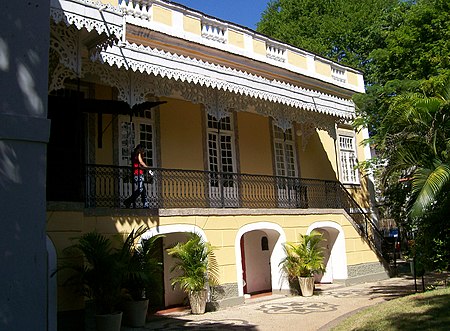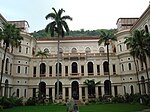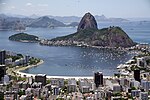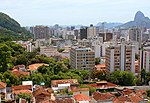Museu do Índio
Ethnographic museums in South AmericaHistory museums in BrazilIndigenous peoples in BrazilMuseums in Rio de Janeiro (city)Native American museums

O Museu do Índio (English: The Museum of the Indian) is a cultural and scientific agency of the Fundação Nacional do Índio (English: National Foundation of the Indian) or FUNAI. It was created by Darcy Ribeiro, in the city of Rio de Janeiro, Brazil in 1953. As the only official institution in Brazil exclusively dedicated to indigenous cultures (the people known as povos indígenas in Portuguese), the museum has the objective of promoting an accurate and updated image for the indigenous cause, while avoiding common misconceptions and prejudice of these societies.
Excerpt from the Wikipedia article Museu do Índio (License: CC BY-SA 3.0, Authors, Images).Museu do Índio
Rua das Palmeiras, Rio de Janeiro Botafogo
Geographical coordinates (GPS) Address Phone number Website External links Nearby Places Show on map
Geographical coordinates (GPS)
| Latitude | Longitude |
|---|---|
| N -22.951944444444 ° | E -43.191111111111 ° |
Address
Museu do Indio
Rua das Palmeiras 55
22270-070 Rio de Janeiro, Botafogo
Rio de Janeiro, Brazil
Open on Google Maps








